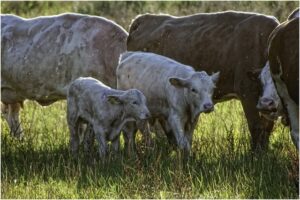Mosquito Control and Livestock Health in Florida
Root causes and consequences, and what should be done to address them
Key Takeaways
- Eastern Equine Encephalitis and West Nile Virus are key mosquito-borne diseases impacting livestock in Florida, causing significant health and economic impacts.
- Mosquito evolutionary adaptations and environmental changes in Florida affect disease transmission, necessitating advanced control strategies.
- Direct effects of mosquito bites on livestock include allergic reactions and stress, leading to reduced productivity and increased disease management costs.
- Current mosquito control methods in Florida combine chemical, biological, and environmental strategies, facing challenges like insecticide resistance and environmental impact.
- Research on mosquito control, vaccine development, and understanding mosquito behavior in changing climates is a collective responsibility, involving collaboration among academic, governmental, public health, and private sector entities.
I. Introduction
Florida’s diverse ecosystem, characterized by its warm climate and abundant water bodies, creates an ideal breeding ground for mosquitoes. These insects are more than just a nuisance; they play a significant role in the state’s ecological balance. Mosquitoes serve as pollinators and as a food source for various wildlife species. However, their impact extends beyond ecological contributions, particularly when considering livestock health.
In Florida’s agricultural landscape, livestock such as cattle, horses, sheep, and pigs are integral to the economy and rural communities. Unfortunately, these animals are vulnerable to a range of health issues due to mosquito bites. Mosquitoes are vectors for diseases like Eastern Equine Encephalitis (EEE) and West Nile Virus, which pose serious health risks to livestock. The impact of these diseases can be severe, leading to illness and, in some cases, death, which in turn affects the productivity and economic viability of farms.
Moreover, the presence of mosquitoes can cause stress and discomfort to animals, leading to reduced feed intake, weight loss, and lower milk production in dairy cattle. This introduction of the article aims to delve into the multifaceted impact of mosquitoes on livestock in Florida, exploring both the direct effects of mosquito-borne diseases and the broader implications for the livestock industry. This article tries to shed light on the challenges and strategies in managing mosquito populations to protect livestock health and ensure the sustainability of Florida’s agriculture.



